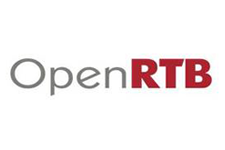
Recently there was an announcement introducing OpenRTB, which is a consortium made up of both demand and supply side providers. The goal of the consortium is to create less friction in an marketplace that is only becoming more and more complex. Part of that initiative includes proposing a set of standards which will allow systems to more easily integrate with each other. You can find the press release, links to relevant news articles, and the link to the standards page on our OpenRTB topic page. Last week, AdMonsters featured a blog post from Ben Trenda of the Rubicon Project, who is a partner in the initiative.
Ben Trenda of the Rubicon Project:
“There are many benefits to the OpenRTB Consortium for publishers. Minimizing friction and improving communication between technology platforms will simply bring additional efficiency to the bidding process – further enabling the right ad to the right user at the right time, at the highest rate possible. More importantly, creating standards will allow everyone in the ecosystem to focus on creating new value that can be distributed to participants on both the buy and sell sides.”
While that is true for buyers and sellers, we wanted to look even further and find out how OpenRTB will impact ad operations specifically.
For answers we asked Bill Simmons of DataXu, Eric Klotz of PubMatic, and MediaMath’s Marta Martinez for their thoughts:
DataXu CTO Bill Simmons:
“Although OpenRTB is primarily about better performance of RTB media for advertisers and publishers, it also brings enormous savings for ad operations. At DataXu, we conducted an internal study of how our campaign managers spend their time. We found that over 30% of the time was invested in managing the synchronization of advertiser requirements with publisher requirements across of all of our supply partners. This time increased as we expanded the breadth of our supply partners. We have heard similar statistics from our supply-side partners who experience a similar workload managing the same issue. OpenRTB will reduce this management time to nearly zero for both buy-side and sell-side systems.”
Eric Klotz VP of Marketing, PubMatic:
“One of OpenRTB’s first initiatives is standardizing protocol for managing publisher and advertiser blocklists, which provides a number of time-saving benefits for Ad Operations. Currently, blocklist management systems can often be an exceedingly manual and time-intensive process. With the new guidelines set in place by OpenRTB, blocklist updates will be done through an API, and blocklist info will be automatically passed back and forth through the bid request and bid response system. For the supply side, this saves considerable amounts of time, as reps will no longer need to perform manual blocklist management and will spend less time on the phone trying to get blocklists to the right demand partners. Additionally, with the new automated industry standards, account reps (particularly new hires) will be able to switch on a new publisher with the confidence that the blocklist is taken care of automatically, thereby also reducing the number of firedrills and need for extensive institutional knowledge. For the demand side, this new set of industry standards means less time loading blocklist info into ad servers and less time assimilating different blocklist formats from various sources.”
MediaMath CMO Marta Martinez:
“OpenRTB was designed to solve for every player in the real time value chain but for ad operations, there are really two key advantages.
First, OpenRTB automates and streamlines workflow creating significant operational efficiencies by eliminating the overlapping manual, labor-intensive tasks and communications needed to effectively scale tradable media. In short, the effort behind campaign creation, implementation and management is reduced.
Second, OpenRTB standards mean ad ops people can work in the tradable media environment without adding new operational complexity because OpenRTB utilizes processes that are already in place.
Creating universal standards and letting machines make decisions is beneficial to ad operations and the entire ecosystem. It allows the marketplace to scale, creating competition for inventory, increasing demand and delivering higher eCPMs. “
What are your thoughts about OpenRTB? Please share with us on Operationally Speaking.